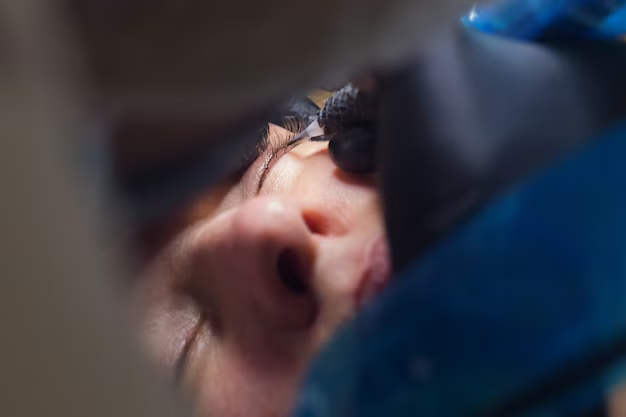Navigating Life After Cataract Surgery: What to Avoid for a Smooth Recovery
Cataract surgery is a pivotal moment for many, ushering in clearer vision and a brightened outlook on life. However, the journey to full visual clarity doesn't conclude the moment you leave the operating room. Post-operative care is crucial to achieving the best results and minimizing complications. Understanding what activities and habits to avoid can significantly impact your recovery. Here’s a comprehensive guide on what not to do after cataract surgery, ensuring you’re well-informed and prepared for a smooth recuperation.
Give Your Eyes a Break: Avoid Strenuous Activity
Minimizing Physical Strain
After cataract surgery, your body needs time to heal, which means avoiding all forms of strenuous activity. Heavy lifting, intense exercise, and any activity that requires significant exertion should be postponed for at least a week, or as recommended by your healthcare provider. Why is this critical? The strain from these activities can increase ocular pressure, potentially leading to complications or negative impacts on healing.
Light Physical Activities
While strenuous activities are off the table, incorporating gentle activities like walking can promote circulation without compromising your recovery. However, make sure to consult with your doctor regarding when you can safely begin to increase your activity level.
Steer Clear of Water: Protecting Your Eyes from Contaminants
Avoiding Water Exposure
Your eyes are vulnerable to contaminants in the days and weeks following surgery. Swimming in pools, lakes, or the ocean can introduce harmful bacteria that may cause infections. Even showering requires caution—keep your eyes tightly closed and avoid getting soap or shampoo in your eyes.
Be Mindful of Eye Hygiene
While water exposure should be minimized, maintaining good hygiene remains important. Use a clean, damp cloth to gently clean around your eyes. This keeps the area free from debris without risking water introduction into your eyes.
Skipping the Sunglasses: Protecting from Bright Light
Understanding Light Sensitivity
Following cataract surgery, patients often experience heightened sensitivity to light. It's vital to shield your eyes from bright light and UV exposure to reduce discomfort and prevent damage. How can you protect your eyes? Invest in a high-quality pair of sunglasses offering 100% UV protection and wear a wide-brimmed hat when outdoors.
Indoor Lighting Considerations
Even indoors, your eyes may be sensitive to certain types of lighting. Adjust bright settings on screens and avoid direct exposure to harsh overhead lights when possible.
Rubbing Eyes: An Absolute No-No
Hands Off Your Eyes
The urge to rub your eyes can be compelling, especially when they feel itchy or irritated. But rubbing your eyes can dislodge your lens or tear the delicate incision site, risking infection and other complications. If irritation persists, speak to your healthcare provider about safe options for relief.
Implementing Hands-Free Solutions
Utilize eye drops as prescribed to manage dryness or discomfort. Consider setting alarms to remind yourself when to apply drops, ensuring consistent and proper application.
Skipping Follow-Up Appointments: A Missed Opportunity for Care
The Importance of Consistent Check-Ups
Follow-up appointments after your surgery allow your healthcare provider to observe your healing progress and intervene if necessary. Missing these appointments could delay identifying and addressing potential complications.
Being Proactive in Your Recovery
Prepare questions in advance and report any unusual symptoms or concerns during these appointments. Clear communication with your provider will help tailor aftercare advice to your unique situation, promoting better outcomes.
Returning to Screens Too Soon: Giving Your Eyes Time
Limiting Screen Time
In today’s digital age, screens are an unavoidable part of life. However, excessive screen time can cause eye strain, exacerbating postoperative discomfort. It's crucial to adopt a gradual approach to reintroducing screen time, starting with short and infrequent periods.
Employing the 20-20-20 Rule
To reduce strain, implement the 20-20-20 rule: every 20 minutes, look at an object 20 feet away for at least 20 seconds. This practice gives your eyes a much-needed break from close focus and screens.
Conclusion: Navigating Your Recovery with Confidence
Cataract surgery is a significant step toward improved vision and quality of life. By consciously avoiding activities and habits that could impede your healing, you protect the integrity of the procedure and support a full and swift recovery. Embrace these guidelines as part of your post-operative care to maximize the benefits of your surgery and return to enjoying the world in a whole new light.
Quick Recovery Tips
- 🚫 Avoid strenuous activities: Give your eyes time to heal.
- ❌ Steer clear of water: Protect your eyes from contaminants.
- 🕶 Wear sunglasses: Shield eyes from bright light and UV rays.
- 🙅♂️ Don't rub your eyes: Prevent irritation and protect your incision.
- 📅 Keep follow-up appointments: Ensure proper healing with professional guidance.
- 💻 Limit screen time: Use the 20-20-20 rule to reduce eye strain.
- 🔍 Stay informed: Follow your healthcare provider’s advice for a smooth recovery.
By observing these tips and trusting your healthcare provider's guidance, you'll navigate the postoperative period with confidence, setting your sights on a future of vibrant vision.

Related Articles
- Are Cataracts Curable
- Are Cataracts Genetic
- Are Cataracts Hereditary
- Are Cataracts Nuclear Sclerosis
- Are Cataracts Painful
- Are Ivizia Eye Drops Okay After Cataract Surgery
- Are You Awake During Cataract Surgery
- Are You Awake For Cataract Surgery
- Are You Put To Sleep For Cataract Surgery
- Are You Sedated For Cataract Surgery
